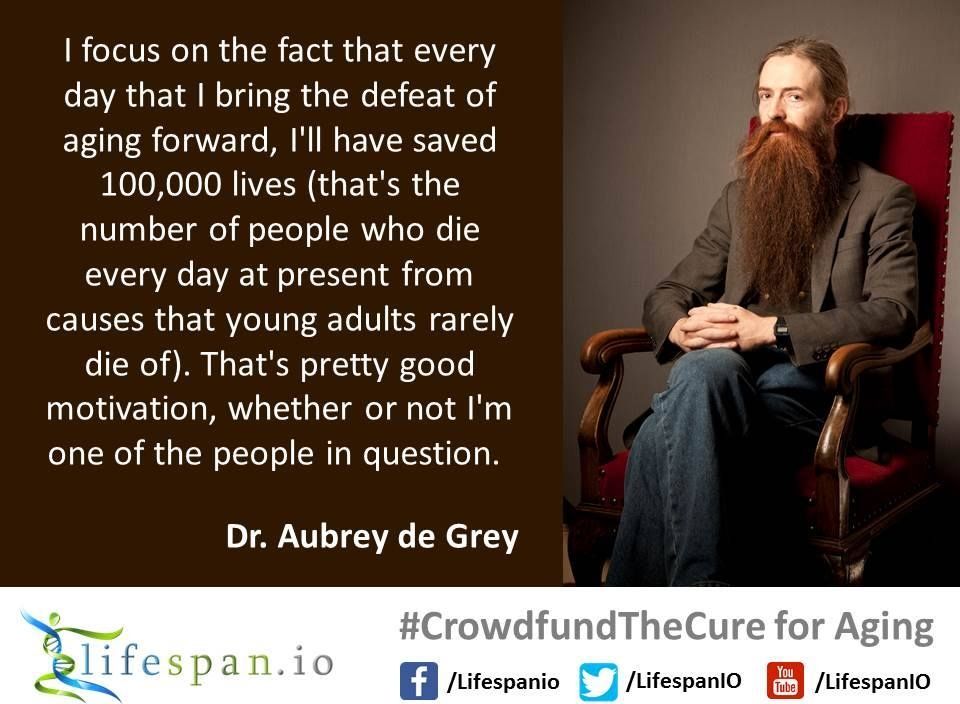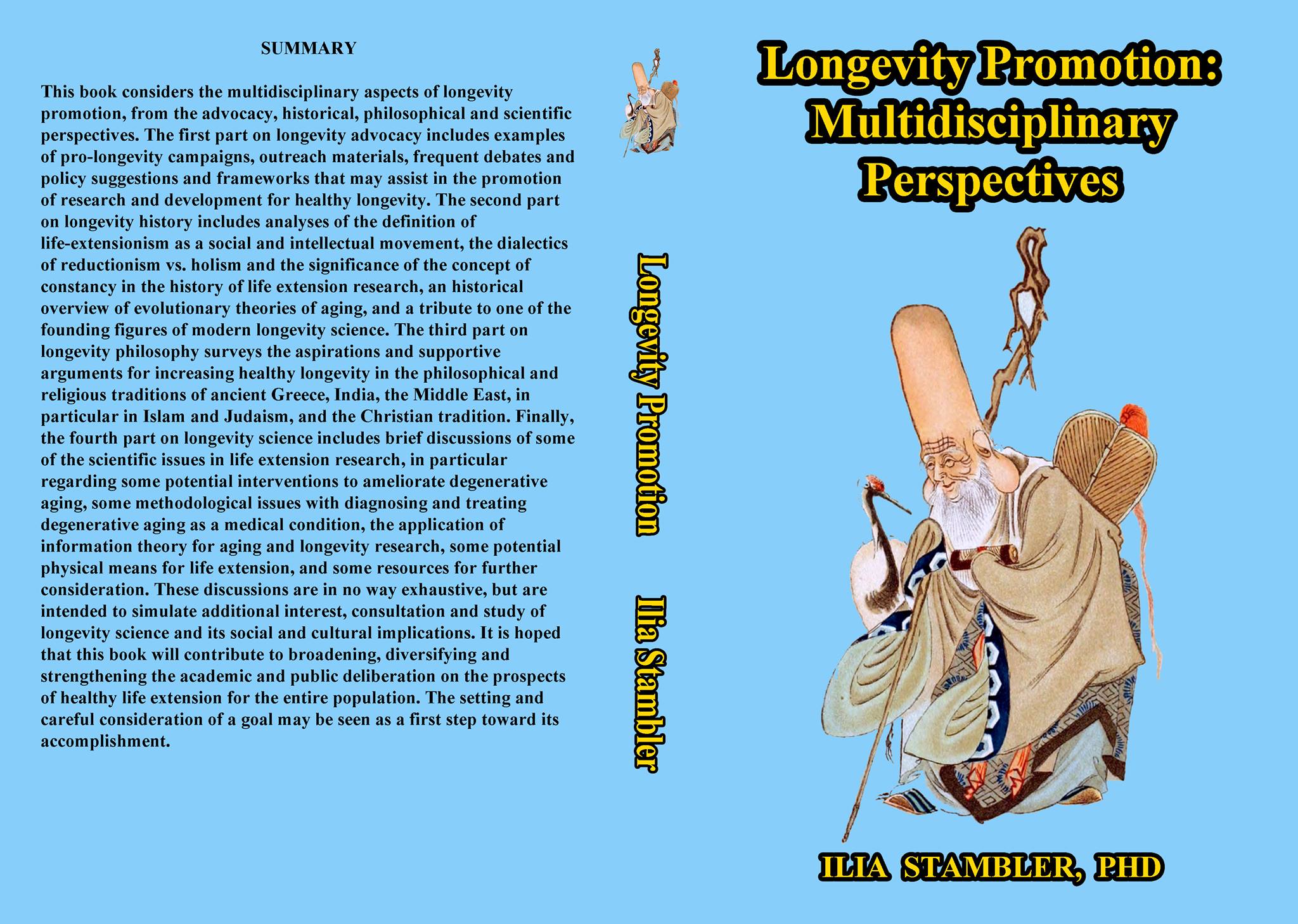Recorded Oct 4th, 2017
Link to the interview, goo.gl/8rQ6YS
Link to Aubrey de Grey’s SENS Research Foundation — http://www.sens.org/
Recorded Oct 4th, 2017
Link to the interview, goo.gl/8rQ6YS
Link to Aubrey de Grey’s SENS Research Foundation — http://www.sens.org/


The work, published in the March 8 issue of Science, finally proves that a single anti-aging enzyme in the body can be targeted, with the potential to prevent age-related diseases and extend lifespans.
The paper shows all of the 117 drugs tested work on the single enzyme through a common mechanism. This means that a whole new class of anti-aging drugs is now viable, which could ultimately prevent cancer, Alzheimer’s disease and type 2 diabetes.
“Ultimately, these drugs would treat one disease, but unlike drugs of today, they would prevent 20 others,” says the lead author of the paper, Professor David Sinclair, from UNSW Medicine, who is based at Harvard University. “In effect, they would slow aging.”
MouseAge (https://www.lifespan.io/mouseage) is creating the first photographic biomarker system using the power of artificial intelligence.
The goal of MouseAge is to create a system capable of determining the age of mice without the need for invasive or even harmful tests.
This means researchers can measure changes to biological age in mice helping to speed up research and reduce animal suffering.

There’s no doubt that Dr. Ilia Stambler’s Longevity promotion: multidisciplinary perspective is a great book for the advocate and keen supporter of healthy life extension. Check out our review by Nicola Bagalà.
There’s no doubt that Dr. Ilia Stambler’s Longevity promotion: multidisciplinary perspective is a thorough book that all kinds of advocates of healthy longevity may find very useful. The book reads pretty much like a collection of academics papers, each dealing with a different aspect of the matter, including science, history, social and moral implications, legislation, and advocacy. Just like you would expect from an academic work, each section of this book is complete with exhaustive sources that will indubitably prove helpful should you wish to dig deeper into the topic being discussed.
The first section of the book focuses on advocacy, discussing typical concerns raised in the context of life extension, outreach material, and initiatives, and it offers suggestions for effective policies to promote aging and longevity research. The latter part of this section was one of the hardest for me to read since policies and legislation are not at all my strongest suit, but I do believe that professional lobbyists and advocates who have legal and regulatory backgrounds and wish to take action will find numerous ideas in it.
The longevity history section discusses the progression of longevity science during the last century. It was surprising to learn that quite a few well-established scientific disciplines of today, such as endocrinology, owe their existence to early efforts to create rejuvenation treatments. This section discusses other aspects as well, such as the holism vs reductionism controversy in the history of longevity research and the legacy of Elie Metchnikoff, a pioneering immunologist and microbiologist who can safely be regarded as the father of gerontology and made no mystery of his conviction that aging should be considered a disease and treated as such.
The cure for aging is coming
We are using A.I. and Computer Vision Techniques to Determine Age and Assess the Effect of Therapies Against Aging in Mice, Increasing the Pace of Life Extension Research. Please subscribe, share, and fund our campaign today! ►Campaign Link: https://www.lifespan.io/mouseage ►Subscribe: https://www.youtube.com/user/LifespanIO?sub_confirmation=1
MouseAGE is working to develop the first photographic biomarker of aging in mice to help validate potential anti-aging interventions, save animal lives, and greatly speed up the pace of longevity research.
To create it we will harness the power of an area of artificial intelligence called Machine Learning, and in particular Deep Learning.
Machine Learning, where a computer system can train itself to become better at a task without explicit programming, has already showed great performance in areas such as human facial recognition, autonomous driving, medical image processing, recommendation engines and many others. While these results are powerful, building up the necessary Neural Networks, or algorithms inspired by the human brain, requires a large dataset of images to use for training: thousands of them.
Due to this, the first stage of the project will be to build a simple instrument for data collection, implemented in a mobile application. This will be distributed among numerous mouse breeding facilities and research universities all over the world to rapidly collect and properly annotate image data for analysis.

Our latest Master Investor Magazine lines up hard-hitting experts offering you FREE advice on how to profit from it.
👉 Download your copy today: https://masterinvestor.co.uk/magazine
It may sound like the plot from the latest science fiction blockbuster, but uploading your brain onto a computer to achieve immortality could soon become a reality.
In a new interview, Professor Brian Cox said that the technique, known as ‘technological singularity’ could be available sooner than you think.
Professor Cox said that he found ‘no reason at all’ why human intelligence couldn’t be simulated by computers — although he did not express a timeline for this to happen.